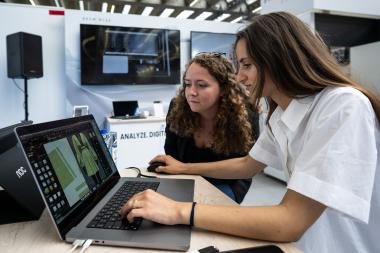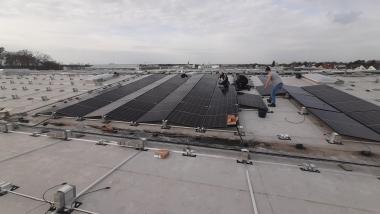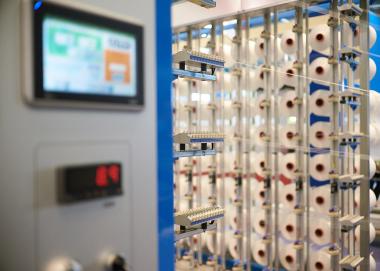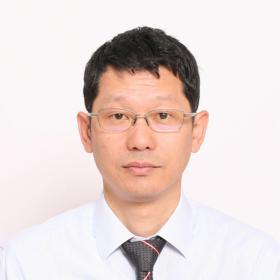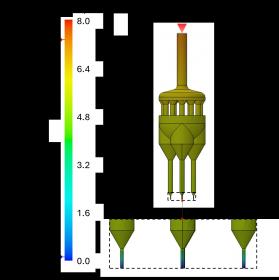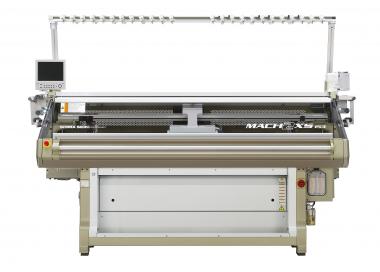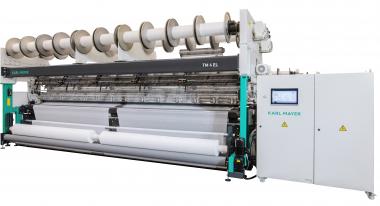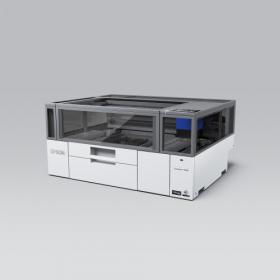Techtextil und Texprocess für junge Fachkräfte und Studierende
Eine Chance für Young Professionals und angehende Fachkräfte, sich mit innovativen Unternehmen entlang der gesamten textilen Wertschöpfungskette zu vernetzen, bieten die Techtextil und Texprocess. Die international führenden Innovationsmessen, die vom 23. bis 26. April 2024 in Frankfurt am Main parallel zueinander stattfinden, halten für Studierende und Berufsanfänger*innen zahlreiche Vernetzungsmöglichkeiten und Wissensformate bereit.
Die Techtextil gibt einen gebündelten Überblick über die globale Innovationskraft technischer Textilien und Vliesstoffe und macht deren vielfältige Anwendungsbereiche sichtbar - von Automobil bis Bau, Fashion und Medizin. Gleichzeitig agiert die Texprocess als internationale Plattform neuester Maschinen, Verfahren und Dienstleistungen für die Konfektion von Bekleidung und textilen Materialien und präsentiert Lösungen von Nähtechnik bis hin zu Cutting-Technologien.
Für Young Professionals bedeutet dies zahlreiche Vernetzungsmöglichkeiten. Techtextil und Texprocess halten eine Vielzahl an Wissens- und Networking-Formaten bereit – darunter zahlreiche Präsentationen von Universitäten, Forschungsinstituten und Start-ups, die gezielt Berufseinsteiger*innen und interessierte Fachkräfte ansprechen. Darüber hinaus stehen am Messefreitag die Vortragsformate Techtextil Forum und Texprocess Forum im Zeichen der nächsten Generation.
„Nachwuchsförderung nimmt einen starken Fokus auf der Techtextil und Texprocess ein. Wir arbeiten sehr eng mit Hochschulen, Forschungseinrichtungen und Newcomern der Branche zusammen. Die aktuelle Dringlichkeit der Textilbranche, neue Fachkräfte zu gewinnen, verleiht unserem Ansatz noch mal mehr Relevanz“, sagt Sabine Scharrer, Director Brand Management Technical Textiles & Textile Processing. „Als Teil des Konzeptes werden ausgewählte Hochschulen zu den Veranstaltungen eingeladen. Schon jetzt haben viele renommierte Institute zugesagt, die Messen mit Studierenden entsprechender Fachrichtungen zu besuchen und die Innovationskraft der Branche gebündelt live zu erleben“, berichtet Sabine Scharrer.
Campus & Research: neueste Erkenntnisse der Wissenschaft
Auf den Arealen Campus & Research in den Hallen 12.1 sowie 8.0 präsentieren internationale Hochschulen, Institute und Forschungseinrichtungen sowohl ihre Forschungskompetenz als auch ihr vielfältiges Angebot an Studien- und Weiterbildungsmöglichkeiten. Die Schwerpunkte liegen auf Textil und Technologien zur Herstellung und zur Be- und Verarbeitung von Textilien.
Techtextil und Texprocess finden vom 23. bis 26. April 2024 auf dem Frankfurter Messegelände statt.
Messe Frankfurt


